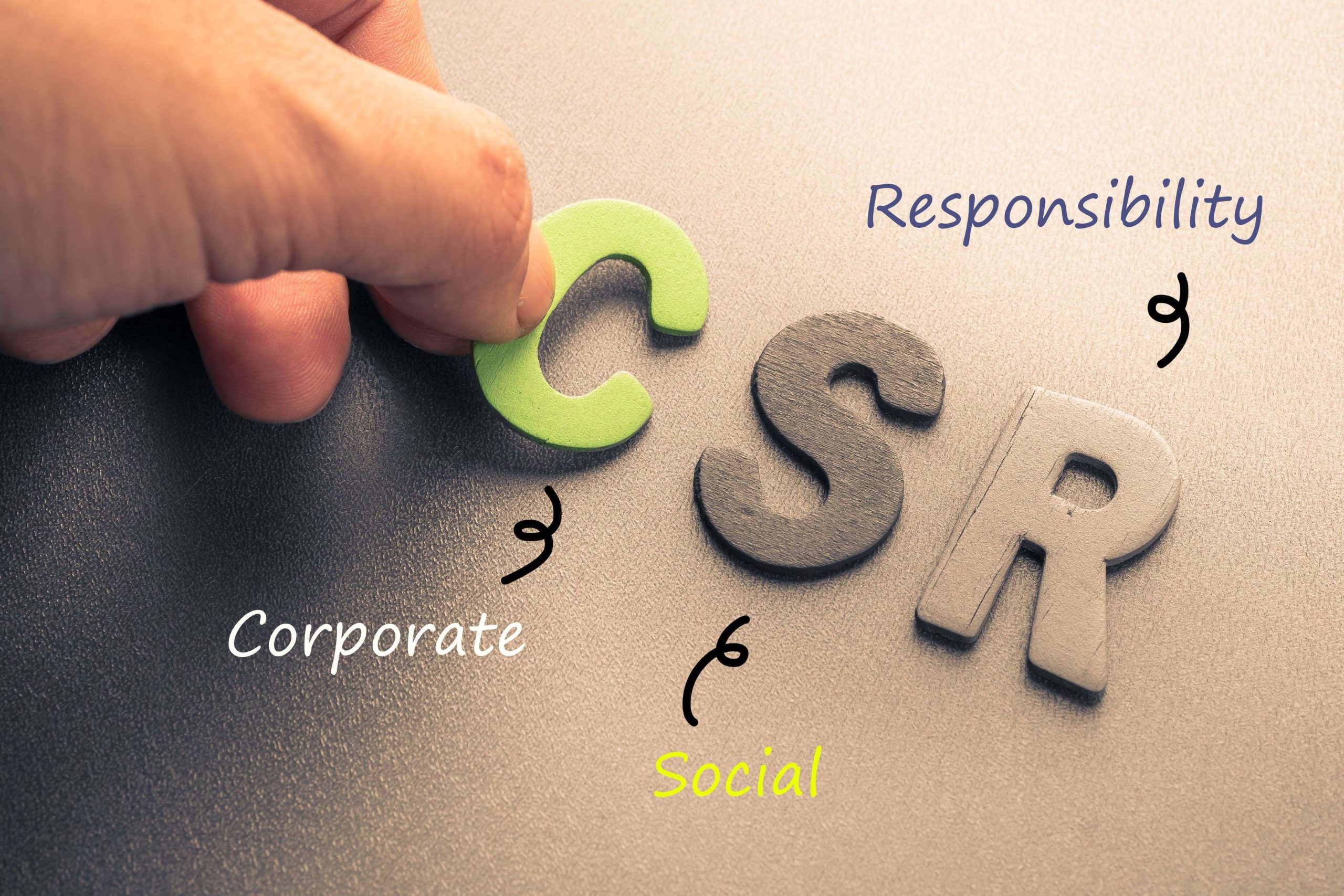
There has been a significant shift in the approach businesses take to their operations. No longer is profit the sole driving factor in the corporate world; instead, an increasing emphasis is being placed on ethical business practices. From ‘fair trade’ to ‘sustainable sourcing’, there’s a growing trend amongst businesses to make ethical decisions – not only because it’s the “right thing to do”, but because consumers are demanding it.
Being Good is Good Business.
– Anita Roddick (Founder of The Body Shop)
But what exactly do we mean when we talk about ethical business practices, and how are they affecting consumer response?
- Ethical business practices: Typically includes practices that promote transparency, ensure worker rights, take care of environmental considerations, and avoid harms to public or environment.
- Consumer response: How consumers react to these practices in terms of their buying behavior, brand loyalty and perception, and their willingness to pay a premium for ethically produced goods and services.
Tracing the Birth of the Ethical Business Movement
Let’s embark on a journey back in time.
The evolution of ethical business practices can be traced back to the Industrial Revolution, when rapid business growth underscored the need for ethical guidelines. Despite prioritizing profit maximization over worker rights or environmental sustainability, the increasing social awareness led to a rising demand for businesses to operate ethically.
Amid a backdrop of social and political unrest in the 1960s, the concept of ethical businesses began to gain traction. A decade marked by the peak of the civil rights, environmental, and women’s rights movements saw the establishment of ethical business practices, leading to a greater societal awareness.
Why now? you might ask. The answer is simple. There was a genuine need for care, consideration, and fairness in society and the business sector was no exception. Companies began to realize that they could no longer function without accounting for the impact of their actions on society at large. This awareness led to the rise of what we know today as corporate social responsibility, or CSR.
Significant milestones were achieved in the 70s and 80s: The first ‘green’ funds were launched, businesses started to produce ‘ethical’ consumer goods, and the term ‘socially responsible business’ began to echo through corporate corridors. Despite this progress, ethical business was still a novel concept for many and its widespread acceptance was yet to come.
Not all those who wander are lost.
– J.R.R. Tolkien
Indeed, the ethical business movement was wandering, but it was certainly not lost. Instead, it was slowly finding its footing. It wasn’t until the 90s that ethical consumerism really took off, blurring the line between profitability and morality.
In the mid-20th century, fair trade experiments, which sought to establish equitable trading partnerships, marked the onset of this era. Businesses started recognizing their responsibilities beyond making profits. As a result, Corporate Social Responsibility (CSR) evolved, leading to ethical business practices like fair trade, sustainable sourcing, and improved labor conditions.
Jumping ahead to the era towards the end of the 20th century, when consumer activism significantly accelerated the ethical business movement. Consumers demanded more transparency, leading to the development of ethical codes of conduct and reporting standards. This era also bore witness to the emergence of social enterprises, businesses that strived to balance profit-making with social impact.

Consumer Responses to Ethical Businesses
Consumers today hold a great deal of power. Thanks to the internet and social media, consumers can easily research a company’s business practices and make purchasing decisions based on this information. This shift has led to an increasing demand for businesses to operate ethically – or risk losing customers.
Here lies the importance of ethical business practices. When companies commit to ethical principles, they attract a growing base of conscious consumers who value ethical behavior. Plus, they establish a strong business foundation that can weather changes in trends, regulations or market conditions. Ethical business practices are not just a moral obligation – they’re also a strategic business move.
And as we inch closer to the present? Millennials and Gen Z, with their heightened sense of environmental and social justice, are driving the ethical business movement faster than ever before.
Various studies have painted a clear picture of the impact of ethical business practices on modern consumers. For instance, a 2020 report by the Capgemini Research Institute found that 62% of consumers favor companies demonstrating ethical values and authenticity.
Let’s delve further into how ethicality in business influences consumer behavior. You might be intrigued by some of these statistics and their implications:
| Statistics | Interpretation |
|---|---|
| 69% of consumers take a company’s ethical values into account when deciding where to shop (Hartman Group) | Customers are diving into a company’s character and ethical barometer before making purchasing decisions. |
| 73% of global consumers would modify their habits for the sake of environmental wellness (Nielsen) | A shift towards eco-friendly and sustainable practices by businesses can be a significant attraction for consumers. |
| 87% of consumers are likely to buy if the company advocates for an issue close to their heart (Cone Communications) | Supporting specific issues that resonate with consumers can greatly influence purchasing decisions. |
| 63% of global consumers prefer companies that reflect their personal values and beliefs (2019 Accenture Strategy) | People are actively seeking out companies that align with their values and are steering clear from those that don’t. |
| 50% of global consumers are willing to pay more for goods from socially responsible companies (Nielsen) | Businesses age cognizant of societal responsibility are appealing to consumers, indicating they’re willing to spend more to support such causes. |
This clear interplay between ethical business practices and consumer responses underlines the potential for businesses to expand customer reach, attract loyal consumers, and foster positive change. Observing ethical standards is far from being a mere marketing front; it plays a defining role in determining the business’s very identity.
Understanding the Concept of Ethical Business Practices
It’s more important now than ever for businesses to conduct themselves ethically.
Your customers, clients or users are no longer just interested in your products or services – they want to know how you run your business, treat your employees and contribute to society. T
hat’s where ethical business practices come in. Ethical business practices are guidelines and principles businesses choose to abide by to ensure fairness, equality and sustainability.
These practices govern a wide range of activities, including corporate governance, social responsibility, environmental protection and employee rights.
Role of Ethical Business Practices
Although they may not always get a lot of attention, ethical business practices are actually quite significant. They represent a business’s commitment to doing what’s right, not just what’s profitable. Operating ethically means a company respects its employees, values its customers, gives back to the community and takes care of the environment. It’s about making conscious choices that benefit not just the business, but society as a whole.
But why should businesses care about being ethical? Well, here are a few key reasons:
- Reputation: Ethical practices can help a business build a positive reputation and attract loyal customers. More people today are consulting businesses’ stances on issues like climate change, diversity and worker treatment before deciding where to spend their money. Companies observed to engage in these behaviors seem better positioned to create strong positive sentiments among consumers, according to a 2018 Cone Communications CSR study revealing that 79% of Americans would switch to a brand known for its ethical practices.
- Employee satisfaction: Ethical practices can significantly boost employee morale. You would love to work for a company where there’s fairness, respect, and honesty, wouldn’t you? A higher retention rate equals reduced recruitment costs, and companies with happy employees are often the most successful. Lastly, embracing ethics has been key to attracting high-potential employees, creating a win-win for both the employees and employers. The 2019 LinkedIn report indicates that 71% of professionals are willing to take a pay cut to work for an ethically-driven company. Consequently, this enables businesses to recruit and retain top talent, which in turn contributes to improved business performance.
- Sustainable growth: A business that’s ethically operated is more likely to experience sustainable long-term growth. These organizations are generally better at risk management, have lower operating costs, and attract more customer and investor support than less ethical counterparts.
Wrap-Up
So, what does this mean for businesses in 2023 and beyond?
The simple answer: ethical business practices are more important now than ever. If companies want to attract and retain a customer base, they need to put substantial efforts into operating ethically. This can include everything from sourcing raw materials responsibly, ensuring fair trade practices, contributing towards the community, and reducing environmental impact.
How aware are you of the ethical standpoints of businesses you invest your money into?
If the ethical actions of a business inspire trust and provide value to consumers, it stands to not just improve its standing in the market, but actively reshape it.
Ultimately, the rise of ethical businesses could lead to a more sustainable and fair world.



